

Guidelines for Evaluating Fellow and Scholar Nominations
Distiguishing Fellows & Scholars
ELLIS Fellows are outstanding senior researchers, normally with more than 10 years of post-PhD experience. They have made significant contributions to science and commit to acting as ambassadors of ELLIS. They are expected to provide strategic advice and leadership not just scientifically, but also in terms of how to build and grow ELLIS.
ELLIS Scholars are outstanding scientists, often assistant professors, with up to 10 years of post-PhD experience*. They do not yet have the seniority of a Fellow but are on a clear trajectory to reach this level.
The level of expected excellence would be similar to what ERC grants or prestigious research institutions (both private and public) would look for. They should have experience that qualifies them for supervision of PhD students (or equivalent).
*Note that eligible career breaks (e.g., maternity leave) will be taken into consideration, following the ERC criteria.
Criteria for Evaluation
Scientific Excellence
Examples of evidence of scientific excellence in Machine Learning and Intelligent Systems include (but are not limited to): regular publications in top-tier venues, research impact (we consider a few of the most highly cited papers), real-world applications, prestigious awards, honours and grants, invitations to serve as AC/PC for top-tier conferences, membership in editorial boards of top-tier journals, and invited talks/tutorials at top-tier conferences.
Note: as a very rough indication: the h-index of Fellows is 25 (min), current median: 54; the h-index of Scholars is 14 (min), current median: 19. Depending on the research areas there may be systematic differences that will be considered.
Theoretical research may not generate the same impact as computer vision research or other more applied disciplines. In general, while h-indices capture one form of impact, they are not the main criterion to tell whether someone qualifies as a Fellow or Scholar.
Besides scientific excellence, candidates are also evaluated based on two other criteria: societal impact and relationship to ELLIS. A positive evaluation on both these criteria is a strict requirement for accepting the application.
Societal Impact
Societal impact concerns any work that has led to impact on society, beyond the scope of regular academic work. A complete absence of societal impact will normally result in rejection of the application. Examples of societal impact include:
Involvement with startups, or projects with high measurable impact in the world outside the academic sphere;
Organization of or keynotes at events other than academic research events;
Advisory positions to government, European Commission, industry, and/or ethical committees on AI/ML outside academia etc.;
Significant measurable impact in media, magazines, or websites outside academia;
Outreach activities (e.g. promotion of inclusivity in STEM).
Examples which do not count as societal impact:
Organization work for academic conferences (AC, PC etc);
Interdisciplinary work that is published only in academic literature.
Relationship to ELLIS
This aspect concerns any collaborations (e.g. joint publications, co-supervision of students) the candidate might have with ELLIS Fellows/Scholars from other Units and whether they are involved in any other ELLIS Programs (e.g., PhD and Postdoc Program, Research Programs). A complete absence of relationship to ELLIS will normally result in rejection of the application.
For an ELLIS Scholar, a firm plan with examples of named collaboration(s) with concrete people or activities is sufficient. For ELLIS Fellows, the candidate must provide evidence of actual engagements.
A planned engagement solely at the level of an ELLIS Program would not count. Instead we look for a plan for collaboration(s) with concrete people or activities within the Program.
Note: Applicants are normally expected to have already become ELLIS Members, and to have engaged in ELLIS activities via that route. Activities within their hosting ELLIS Unit do not count, as they are already part of normal academic activities.
Each candidate will be evaluated by a number of existing Fellows working in a different country and of a different nationality each providing a score according tothe following 6-point scale: 5 - outstanding; 4 -excellent; 3 - very good; 2 - good; 1 - fair; 0 - poor. As a reference, Scholars/Fellows are expected to have an overall aggregate score of at least 4.
Status Clarification
Inactive Fellows/Scholars
A Director may communicate that a Fellow or Scholar is inactive in their Unit/Program. Inactive Fellows/Scholars are redesignated as ELLIS Fellow/Scholar Alumni. Their photo is displayed on the ELLIS webpage for their Unit/Program under the category ELLIS Fellow/Scholar Alumni for the respective Unit/Program.
Expiration of the status of Scholar
The title of ELLIS Scholar expires when the candidate reaches the threshold of 15 years after their PhD*, and a new evaluation is needed for promotion to an ELLIS Fellow. E.g., a candidate has received their PhD in 2015 and has been elected as an ELLIS Scholar in 2024. In this case, the candidate will need to be nominated by 2030 for promotion to the ELLIS Fellow category. If an ELLIS Scholar is not nominated for the transition to Fellow before the end of the 15th year after their PhD, the Scholar title will expire. Expired Scholars become ELLIS Scholar Alumni.
To support this process, we will send out a yearly reminder to Directors with a list of Scholars approaching the end of their eligibility period, and we will also contact the Scholars directly.
*Note that eligible career breaks (e.g., maternity leave) will be taken into consideration, following the ERC criteria.
Candidates based outside of Europe or who leave the Unit/Program
If a Fellow or Scholar leaves Europe or their Unit/Program, they are redesignated as an alumnus of that Unit/Program. Their photo is displayed on the ELLIS webpage for their Unit/Program under the category ELLIS Fellow/Scholar Alumni for the respective Unit/Program.

